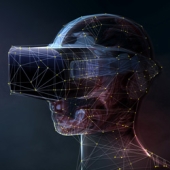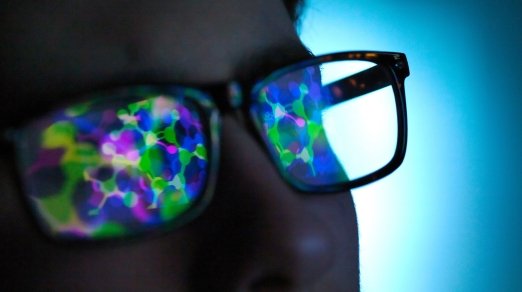Mekong Club CEO: Building a ‘metaverse for good’ requires an ethical foundation—NGOs can help
IN BRIEF
- As CEO of the Mekong Club, I often hear about human trafficking cases that start with online encounters on the internet. And I have no doubt that predators will be able to do this—and worse—in the metaverse.
- Our goal is to acquire a seat at the table early to help develop safety and privacy standards and to work with the designers and developers to prevent the seeping of real-world problems—racism, discrimination, bullying, sexism, exploitation and more—into virtual-world environments.
- The metaverse offers infinite possibilities. But for the metaverse to thrive, people must feel safe. NGOs have a responsibility to take a leadership role in making sure these new virtual worlds are safe and ethical.
Nina Jane Patel, Bloomberg's technology columnist, recently entered the metaverse environment Horizon Venues, a newly launched virtual-reality social platform, to have a look for herself. She found the virtual, extended, augmented and mixed reality, along with other Web 3.0 tools, engaging but also a little too real. She unfortunately experienced some “creepy” encounters that included groping, being surrounded by male avatars who offered sexually suggestive gestures and worse. In the end, she found the whole experience “shocking” and said she was “sad that the current state of VR has been heavily driven by proponents of VR as fiction—violence, sexual fantasies, and to be quite frank—hate.”
Another female gamer, Jordan Belamire, was initially “smitten” with her first virtual-reality experience. “Virtual reality had won me over, lock, stock and barrel.” But the excitement was short-lived. Within three minutes of joining QuiVr, a multiplayer virtual-reality game, she was harassed and violated and wrote an open letter describing her experience. “The public virtual chasing and groping happened a full week ago, and I’m still thinking about it. What’s worse is that it felt real,” she says. Belamire asks: As VR becomes increasingly real, how do we decide what crosses the line from an annoyance to an actual assault? “Eventually we’re going to need rules to tame the Wild, Wild West of VR multiplayer games.”
The experiences of these two women offer a glimpse into how an existing problem of online sexual predation and violence could get a boost from an exciting new technology that is still uncharted territory. As CEO of the Mekong Club, an expert in human trafficking and a former United Nations representative, I often hear about human trafficking cases that start with online encounters on the internet. And I have no doubt that predators will be able to do this—and worse—in the metaverse.
Just like on the internet, people in these new worlds could pose as love interests, new friends or even legitimate job recruiters. After establishing a false sense of trust, these traffickers could lure their unsuspecting victims into modern slavery, prostitution or forced labour—either in the real world or online. The more time people spend interacting in the virtual environment, the worse the problem could become.
The sinister potential of the metaverse is not lost on some of the companies that are building it. Meta (Facebook), for instance, has created a “safe zone,” which offers a protective bubble that users can activate when they feel uncomfortable or threatened. Within this space, no one can interact with them, and setting personal boundaries would help ensure "behavioural norms," Meta says. Another option being discussed includes a button or alarm that immediately alerts an administrator within a virtual world that abuse is taking place. But for this to be effective, immediate action and consequences must follow. One such consequence could involve a lifetime ban from the metaverse, although how such a ban would be enforced is unclear.
Jordan Belamire asks: As VR becomes increasingly real, how do we decide what crosses the line from an annoyance to an actual assault?
Considering how realistic and sophisticated virtual reality can be and will become, the stakes couldn’t be higher for metaverse participants—both developers and users. As with all technological advancements, safety and ethical concerns should be top of mind as both the public and private sectors explore their roles in this brave, new world.
Building an ethical foundation
As the metaverse grows, with more companies joining in to build online environments, nongovernment organizations (NGOs) and academics who specialize in morals, ethics and human rights need to be involved in this process. The Mekong Club, which works with the private sector to fight the issue of human trafficking, has already reached out to Meta, Microsoft and other companies to offer our advice and guidance on how to include human-rights values in the metaverse mix. Our goal is to acquire a seat at the table early, as this new phenomenon unfolds, to help develop safety and privacy standards and to work with the designers and developers to prevent the seeping of real-world problems—racism, discrimination, bullying, sexism, exploitation and more—into virtual-world environments.
One way of preventing vulnerable individuals from being targeted by traffickers with false promises of work or from being groomed into exploitative situations is education. Metaverse providers might encourage or even require new metaverse participants to learn about such risks with a required e-learning orientation. As part of this initiation process, the content might also offer warnings to users, outlining the penalties or punishments that will occur for those who partake in unlawful activities. The Mekong Club is hopeful that it will be able to participate in the development of this process.
For the metaverse to be a safe environment, online police and security guards might be needed to circulate and detect human-rights violations and confront the abusers in real time. Whatever processes and procedures are put in place, they should be monitored and evaluated on a regular basis and updated and expanded as these virtual worlds unfold. Of course, who oversees or regulates all this is not clearly defined and remains one of the many metaverse mysteries needing to be solved. Beijing, for its part, has already announced it plans to regulate “digital humans” in the metaverse, looking to set standards for virtual influencers and gaming avatars. Will other governments follow?
The Mekong Club, which works with the private sector to fight the issue of human trafficking, has already reached out to Meta, Microsoft and other companies to offer our advice and guidance on how to include human-rights values in the metaverse mix.
Helping build a metaverse for good
In addition to helping metaverse designers identify human-rights risks and acting as advocates for safety standards, NGOs can play other positive roles in the metaverse. Here are some other ways the Mekong Club is exploring the metaverse to bring about positive change:
- VR film tours: Research says the best way to learn is to experience a situation first-hand. Virtual reality represents “a three-dimensional, simulated environment that is generated by computer technology,” and it focuses on “an experiential interface rather than observational.” The benefit of learning from VR is that it offers the viewer an opportunity to experience the emotional outcome of a sensitive issue without being in any danger. This allows the person to internalise on both an intellectual and emotional level. The Mekong Club has used VR tours in the past to sensitise people to sex trafficking and forced labour. We are in the process of acquiring more content related to this technology.
- Metaverse workshops and events: We are looking into how we can use the metaverse to offer workshops and talks to raise much-needed awareness on the topic of modern slavery within the metaverse itself. Online billboards and advertising will promote these talks, in which an online avatar delivers the content.
- Virtual office: We are also exploring the idea of having a metaverse office that would allow us to reach people in these worlds. The exact makeup and approach are presently under consideration.
The metaverse offers infinite possibilities, many of them positive and exciting. But for the metaverse to thrive, people must feel safe. NGOs like ours, along with academics and behavioural scientists, have a responsibility to take a leadership role in making sure these new virtual worlds are safe and ethical and that they live by the mantra of “metaverse for good.”






































